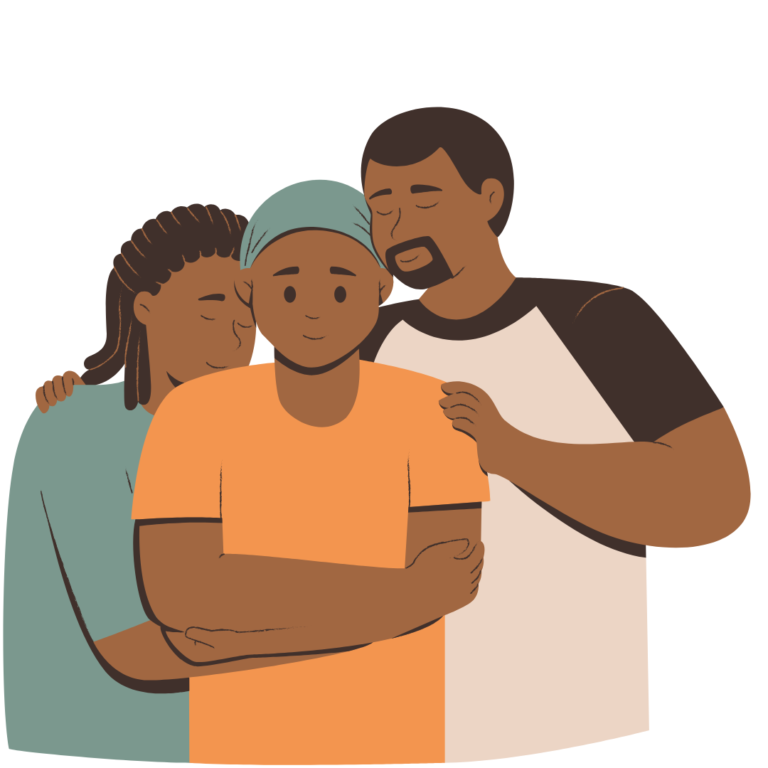Grief is a complex feeling that almost everybody will probably experience at some point in their lives. Something a lot of people don’t talk about, though, is how difficult helping someone through grief is as well. It is a very intimidating experience because there are so many chances that you could say the wrong thing and just make them feel worse than they did before, though you were just trying to help. Here are some do’s and don’t you can follow when you’re in this position:
DO
➔ Follow the griever: As much as it may seem like you need to rack your brain for the perfect thing to say to someone who’s grieving, majority of the time they just need your presence and need to know that someone is physically there for them. Sitting quietly with the griever and allowing them to start a conversation if and/or when they need to is one of the best ways you can help. This will allow for them to not feel forced to talk about things they aren’t ready to talk about just to make things less awkward between them and you, and it could also enable for deeper and more thoughtful conversations that leave a lasting impact on them.
➔ Practical help: Most people that are grieving find it difficult to even just “live,”as in things like cooking for themselves, cleaning, or even taking care of their personal hygiene. A great way to help would be just showing up at their house (within certain boundaries and limits of course) with maybe a dish of food, taking a look at what needs to be done – maybe you see some unfolded laundry, a sink full of dishes, or dirty floors – and just get to it. This would take a huge burden off of the griever’s shoulders, and they may even feel better with their grief with a fresh house and some good food. You could even make this more personal and organize activities or do other things that relate to their interests to make them happy. Maybe send a book lover a bag of new books to read, or take them out to a movie, or schedule a painting class for the both of you. Anything that could make them feel just a little bit happier, even just for that moment, could go a long way.
➔ Keep the lost one “real”: Often, after someone loses a loved one, we stray away from things that might remind them of who they lost, like if they’re brought up in a conversation, seen in a picture, or reminded of when you pass by one of their favorite places. However, it’s important to honor the memory of the lost loved one by actively encouraging discussions about that person instead. Memories are all that really remain after a loss, thus talking about them keeps them alive in broken hearts. In addition to this, make sure you’re putting proper nouns to the names of the lost ones; don’t say “your mother” or “your teacher,” but refer to them by name (“Mary,” “Ms. Anderson,” etc).
DONT
- ➔ Project a better future: Saying things like“time will heal”or“things will get better with time” does not help certain people.
- ➔ Minimize their loss: Saying things like “at least you still have your other daughter” or “you can always remarry” or “you can try again for another baby though, right?” also does not help at all. Although you may be trying to look on the bright side and stay optimistic, these words send the wrong message to the griever, conveying to them that they shouldn’t be feeling sadness because they still have other forms of happiness in their life.
- ➔ Pretend you know the answer: The most common example of this is when people say “they’re in a better place now.” If you are unable to think of anything other than that, it may be just to use silence as a helping method.
- ➔ Talk about your own loss: This also ties into what was mentioned earlier with minimizing their loss, as you are taking attention away from them and bringing it onto yourself. You can provide comfort to them well without feeling the need to relate to them by sharing your own grief stories.
- ➔ Ask “how are you”: This is not advised because it is assumed they are not okay since they are grieving. A better alternative would be to ask “how are you feeling today.”In conclusion, it is complicated to comfort someone who is grieving, however it is important to remember that working extra hard to find the right things to say may actually be the least helpful thing you can do. Ultimately, your genuine presence and empathy can provide the most comfort to someone who is grieving.
Written By: Nithya Rupavatharam, Mental H2O Youth Resource Writer


